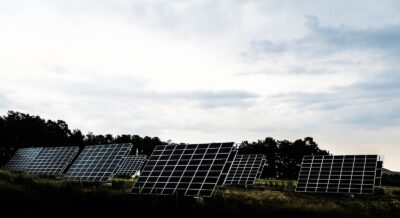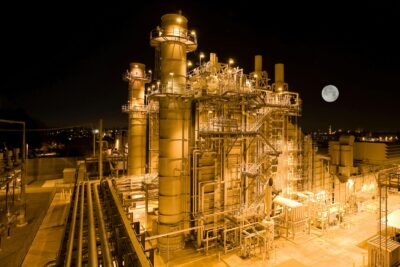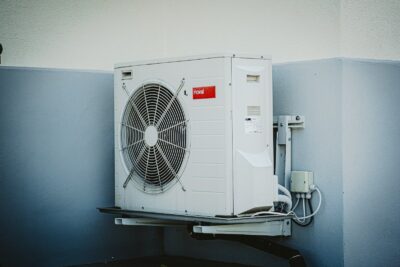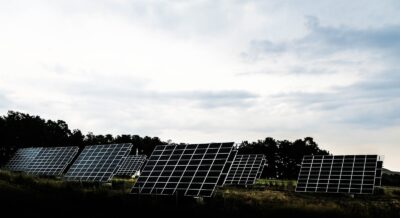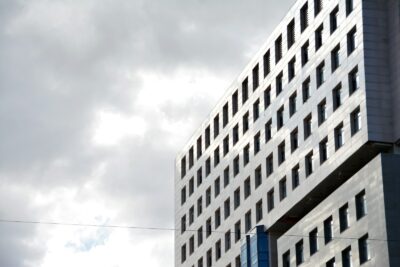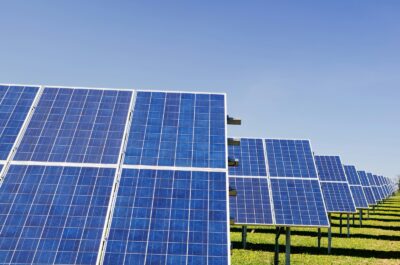Implementing Advanced Technologies for Sustainable Building Management
LED Lighting: The Foundation of Energy Efficiency
The use of energy-efficient building technologies, such as LED lighting, can significantly reduce the energy consumption of buildings, making it a cornerstone of modern sustainable building practices. In the UAE and Saudi Arabia, where the construction sector is booming, the adoption of LED lighting systems has gained momentum due to their superior efficiency and longevity compared to traditional lighting solutions. LED lights consume up to 75% less energy and last 25 times longer, offering substantial cost savings and environmental benefits. Moreover, the implementation of smart lighting systems, which can be controlled and optimized through IoT and AI technologies, further enhances energy savings by adapting to real-time occupancy and natural light conditions. This integration of LED lighting and smart controls not only reduces electricity consumption but also improves the overall user experience, making buildings more comfortable and efficient.
High-Efficiency HVAC Systems: Enhancing Comfort and Sustainability
Heating, ventilation, and air conditioning (HVAC) systems are among the largest consumers of energy in buildings. Therefore, the transition to high-efficiency HVAC systems is crucial for reducing energy consumption and promoting sustainability. In cities like Riyadh and Dubai, where extreme temperatures drive high energy demand for cooling, advanced HVAC technologies can make a significant impact. High-efficiency HVAC systems use innovative designs and components, such as variable speed drives, advanced compressors, and optimized heat exchangers, to deliver superior performance with lower energy input. Additionally, integrating these systems with smart building controls allows for precise regulation of indoor climates based on real-time data and predictive analytics. This not only enhances energy efficiency but also ensures optimal indoor air quality and comfort, contributing to the health and well-being of occupants.
Smart Building Controls: The Future of Building Management
Smart building controls represent the future of building management, offering unparalleled opportunities for energy savings and operational efficiency. These systems leverage advanced technologies such as IoT, AI, and data analytics to monitor, analyze, and control various building systems in real-time. In the UAE and Saudi Arabia, smart building controls are being increasingly adopted in both new constructions and retrofitting projects. By integrating lighting, HVAC, security, and other systems into a unified platform, smart controls enable holistic building management. For instance, they can automatically adjust HVAC settings based on occupancy patterns, weather forecasts, and energy prices, optimizing energy use and reducing costs. Furthermore, smart building controls provide valuable insights into building performance, helping facility managers identify inefficiencies and implement targeted improvements. The adoption of these technologies not only supports energy conservation efforts but also enhances the overall functionality and sustainability of buildings.
Business Success and Leadership in Energy Efficiency
Economic Benefits of Energy-Efficient Technologies
The implementation of energy-efficient building technologies offers significant economic benefits for businesses in the UAE and Saudi Arabia. By reducing energy consumption, these technologies lower operational costs, enhancing the profitability and competitiveness of businesses. The initial investment in energy-efficient solutions is often offset by the long-term savings achieved through reduced utility bills and maintenance expenses. Additionally, businesses that prioritize energy efficiency can benefit from various government incentives and support programs aimed at promoting sustainable practices. For example, the UAE and Saudi governments offer grants, tax credits, and rebates for the adoption of energy-efficient technologies, making it financially attractive for businesses to invest in sustainability. Moreover, companies that demonstrate a commitment to energy efficiency can enhance their corporate social responsibility (CSR) profiles, attracting environmentally conscious customers and investors.
Leadership and Management in Energy-Efficient Projects
Effective leadership and strategic project management are critical for the successful implementation of energy-efficient building technologies. Business executives and mid-level managers in the UAE and Saudi Arabia must possess a clear vision and commitment to sustainability to drive these initiatives forward. Leaders play a pivotal role in securing funding, fostering a culture of innovation, and ensuring alignment with organizational goals and regulatory requirements. Project managers, on the other hand, are responsible for overseeing the technical and logistical aspects of energy-efficient projects, from planning and procurement to installation and commissioning. They must coordinate with various stakeholders, including engineers, contractors, and suppliers, to ensure timely and cost-effective project delivery. By investing in leadership and management training, organizations can build the necessary expertise to execute energy-efficient projects successfully, maximizing their environmental and economic benefits.
The Role of Technology in Driving Business Success
The integration of modern technology is a key driver of business success in the realm of energy efficiency. Technologies such as AI, Blockchain, and the Metaverse are transforming how buildings are designed, constructed, and managed. In the UAE and Saudi Arabia, the use of AI in energy management systems enables predictive maintenance, energy forecasting, and automated control, enhancing the efficiency and reliability of building operations. Blockchain technology can be used to create transparent and secure records of energy transactions, facilitating carbon credits trading and ensuring compliance with sustainability standards. The Metaverse, with its immersive virtual environments, offers innovative solutions for training, collaboration, and remote monitoring of building systems. By embracing these cutting-edge technologies, businesses can not only improve their energy performance but also gain a competitive edge in the market.
Conclusion: The Future of Energy-Efficient Building Technologies
In conclusion, the adoption of energy-efficient building technologies is essential for achieving sustainable development and reducing energy consumption in the UAE and Saudi Arabia. LED lighting, high-efficiency HVAC systems, and smart building controls offer significant environmental and economic benefits, making them key components of modern building management. Effective leadership and project management are crucial for the successful implementation of these technologies, ensuring alignment with organizational goals and regulatory requirements. The integration of advanced technologies such as AI, Blockchain, and the Metaverse further enhances the potential of energy-efficient solutions, driving business success and innovation. As the UAE and Saudi Arabia continue to pursue their sustainability agendas, the widespread adoption of energy-efficient building technologies will play a pivotal role in shaping a greener and more sustainable future.
#EnergyEfficientBuildingTechnologies #SustainableBuildings #UAE #SaudiArabia #ModernTechnology #BusinessSuccess #Leadership #ProjectManagement



